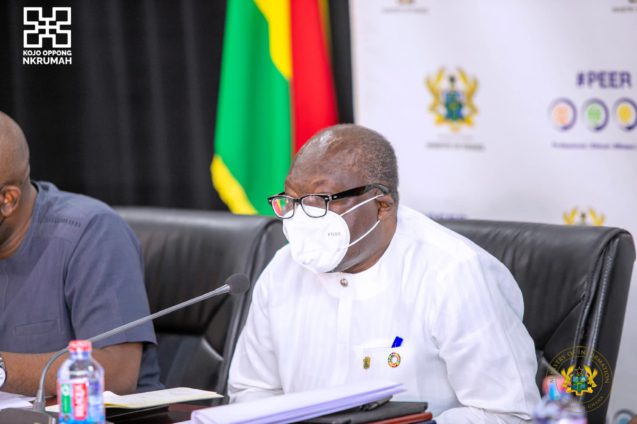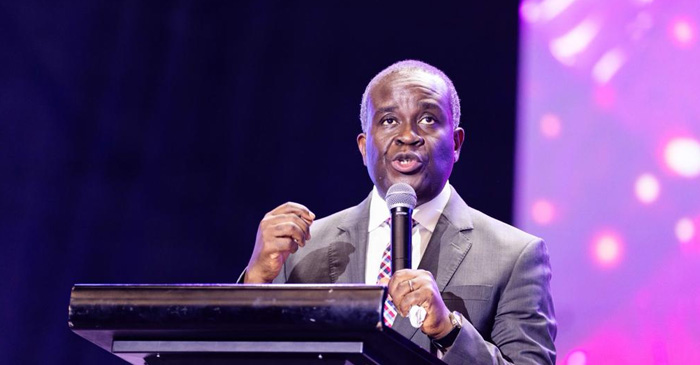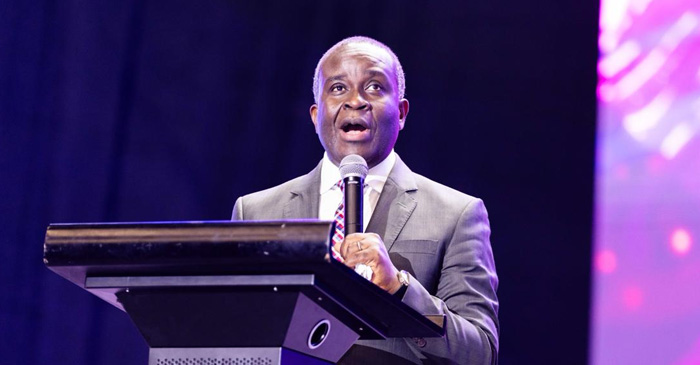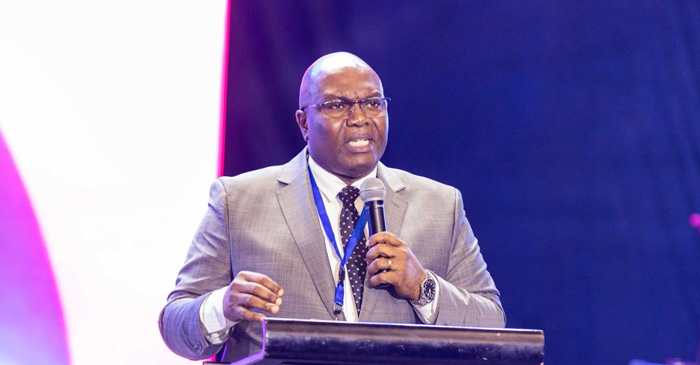
Finance Minister, Ken Ofori-Atta, has revealed a wide range of plans to salvage the country’s economy.
The Minister, at a press conference in Accra, expressed optimism that the measures will go a long way to cushion the citizenry amid the economic downturn.
The Bank of Ghana (BoG), in its January 2022 Monetary Policy Report, said the stock of public debt was equivalent to 78.4% of GDP at the end of 2021, compared with 76.1% of GDP at the end of 2020.
The country’s total public debt stock stood at about ¢344.5 billion as of November 2021, a situation experts have described as alarming.
Fuel prices have also crossed the ¢10 per litre mark amid the freefall being experienced by the local currency.
Addressing the media on Thursday, he blamed the situation on the inability to approve portions of the 2022 budget especially the E-Levy and the ongoing war between Russia and Ukraine.
https://drive.google.com/file/d/1zUpPeV7YZKoDLAWZSsWRlgrJOzd38CY0/view
On the inability to pass the bill, he explained that it influenced the subsequent downgrading of the country’s creditworthiness by Fitch and a subsequent impact on the revenue mobilisation agenda.
The uncontrollability of the Ukraine invasion was also a source of worry to the government as far as the global effect of the war is concerned.
That notwithstanding, the Finance Minister has outlined major interventions to shore up revenue aimed at achieving a 7.4% deficit target set in the 2022 budget.
These measures encapsulate expenditure cuts, intense revenue mobilisation drive, fuel price mitigation and currency financing.
The Interventions
- Discretionary spending is to be further cut by an additional 10%.
- 50% cut in fuel coupon allocations for all political appointees and Heads of government institutions, including SOEs, effective 1st April 2022.
- Imposition of a complete moratorium on the purchase of imported vehicles for the rest of the year with immediate effect. This will affect all new orders, especially 4-wheel drives. This is geared towards reducing total vehicle purchases by the public sector by at least 50 percent for the period.
- Government has imposed a moratorium on all foreign travels, except pre-approved critical/statutory travels.
- Government will conclude on-going measures to eliminate “ghost” workers from the Government payroll by end December 2022;
- Government will conclude the renegotiation of the Energy Sector IPPs capacity charges by end of Q3-2022 to further reduce excess capacity payments by 20% to generate a total savings of GHS1.5 billion;
- Impose a moratorium on establishment of new public sector institutions by end April, 2022.
- Prioritise ongoing public projects over new projects to enhance the efficient use of limited public funds over the period by finishing ongoing or stalled but approved projects.
- reduce expenditure on all meetings and conferences by 50%, effective immediately.
- Heads of SOEs to contribute 30% of their salaries from April to December 2022 to the Consolidated Fund.
- Pursue a comprehensive re-profiling strategies to reduce the interest expense burden on the fiscal; and liaise with Organised Labour and Employers Association to implement with immediate effect, the measures captured in the Kwahu Declaration of the 2022 National Labour including reforms towards addressing salary inequities / inequalities (e.g. Article 71 Office Holders), the weak link between pay to productivity and the sustainability of the payroll.
Fuel Price Mitigation measures
Government has committed to reducing margins in the petroleum price build-up by a total of 15 pesewas per litre with effect from 1st April. The reductions are expected to reduce prices of petrol by 1.6% and diesel by 1.4%. The details are as follows;
- BOST margin reduced by 2 pesewas per litre
- Unified Petroleum Pricing Fund (UPPF) margin reduced by 9 pesewas per litre
- Fuel Marking Margin (FMM) reduced by 1 pesewa per litre
- Primary Distribution Margin (PDM) reduced by 3 pesewas per litre
- National Petroleum Authority (NPA) in discussion with the OMCs to reduce their margins.
- Government to ensure consistent supply of fuel and manage the rate of ex-pump price increase by ensuring that BoG has access to adequate foreign exchange
Revenue mobilisation measures
- Begin the implementation and collection of the revised Property Rate by end of April 2022.
- Implement the E-VAT/E-Commerce/E-Gaming initiatives by end of April 2022.
- Roll out the simplified tax filing mobile application for all eligible taxpayers by July 2022;
- Impress upon Parliament to fast track the passage of the E-Levy Bill, Tax Exemptions Bill, and Fees and Charges Bill.
- Prioritise the Revenue Assurance, Compliance, and Enforcement (RACE) Programme to plug revenue leakages especially at the ports and the infamous fuel bunkering and small scale mining exporters cabal.
- Government to partner the private sector to introduce digital systems to monitor quarrying, sand winning and salt winning to get more revenues from our natural resources; and
- Immediately enforce the “No Duty – No Exit” policy at the MPS Terminal at the Tema Port to improve revenue collection
Financing and Currency Measures
- Government to conclude external financing arrangement of up to US$2 billion in the next 2-6 weeks in line with approved external financing for 2022 and for liability management.
- MoF to work with the Central Bank to review the foreign exchange retention policy to ensure multinational companies in the extractive sectors retain foreign exchange earnings, from the sale of our resources, in the country.
Additional Measures over the medium term.
- Wean-off public tertiary institutions from government payroll and provide them with a fixed amount “block grant” instead.
- Pursue reforms to address structural challenges in public financial management including procurement and commitment control, payroll management and human resource management.
Source: Kenneth Awotwe Darko











